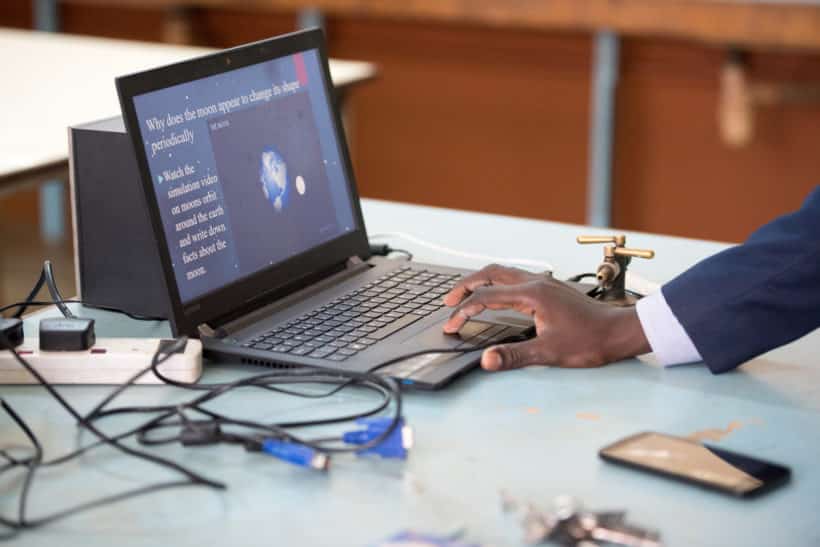
A 2021 projections report by the International Taskforce on Teachers for Education 2030 revealed that more and smarter investment in teachers and teaching is needed to enable young Africans to access quality education. Sub-Saharan Africa will need to recruit between fifteen to seventeen million teachers to reach its education goals by 2030.
This year’s World Teachers’ Day theme, “The teachers we need for the education we want: The global imperative to reverse the teacher shortage,” underscores the urgency to attract, retain and motivate teachers.
In secondary education, for instance, more than 10% higher annual growth of teacher numbers is needed in Burundi, Central African Republic, Chad, Mozambique, Niger, and Tanzania. On the other hand, Burkina Faso faces a funding gap of US$97 million in its efforts to provide teacher training and other interventions in the years leading to 2025.
Despite the challenges, education in Africa has evolved with the adoption of technology in learning at various levels, especially after the COVID-19 pandemic. While technology may not replace teachers in a classroom, it can help alleviate the shortage of teachers by providing virtual teachers and transforming teacher-learner outcomes.
What, then, will it take to build digital tools that empower teachers and learners?
Speaking in the October edition of EdTech Mondays by Mastercard Foundation, Peter Tabichi, a STEM teacher in Kenya who also won the 2019 Global Teacher Prize, acknowledged that embracing technology has made teachers’ work more efficient and their workload lighter.
“Teachers are using technology alongside the traditional teaching models. It became paramount to be innovative using the low-cost ICT options available such as smartphones,” said Tabichi, who recommends continuous ICT learning for teachers.
To prove this, a multi-year study across primary schools in South Africa revealed that a single teacher conducting virtual classes could deliver education that equalled three on-site teachers, making technology more economically effective.
However, the lack of necessary digital tools and accessories such as internet connectivity, devices and infrastructure support remains a challenge, especially for schools in underserved communities and rural areas.
This is more pronounced for learners with disabilities whose teaching requires specialized tools, such as alternative keyboards, audiobooks and publications, or optical character recognition, that are unaffordable. “Parents oftentimes cannot afford these tools – including the basic smartphones – for their children to use. The same goes for teachers,” said Elisa Hungwe, a teacher at Ndlovu Secondary School in Zimbabwe another panelist on EdTech Mondays Africa. There is therefore a need to address equity and inclusivity as we promote technology use in education.
Challenges notwithstanding, studies have shown that where teachers are empowered to use technology in teaching, there are better learning outcomes. Teachers are more motivated when using practical and interactive illustrations aided by digital tools eliminating the textbook burden, especially in underserved teaching environments.
EdTech company Founders Agang Ditlhogo of the Click Generation in Botswana and Precious Oluwadunsin of Learners Crib in Nigeria called for government support in creating conducive environments for the private sector to support the implementation of digital infrastructure in schools. By availing tools and resources to adequately support technology use in education, teachers can be empowered with necessary skills while on the job.
A good example of empowering teachers featured on this edition is the Mastercard Foundation Leaders in Teaching program focused on training, motivation, and professional development for teachers and school leaders across Africa. Beginning in Rwanda, the initiative being implemented in partnership with the African Institute of Mathematics and Science (AIMS), aims to improve science, math, and ICT knowledge and teaching skills for new and experienced teachers, improve the capacity of school leaders to create positive instructional environments and recruit young people into the profession. At inception, the initiative aimed at impacting at least 250,000 secondary school students and more than 10,000 teachers and educators. The program has so far reached 16,293 teachers, 3274 educators and 276,323 students.
In conclusion, building digital tools to empower teachers and learners is a collaborative effort that begins with embracing relevant EdTech solutions that are practical, available, and relevant to different teaching contexts for optimal impact on learners in Africa.
Admittedly, embracing technology has made teachers’ work more efficient and the teaching experience satisfactory, and the only way to go is forward with technology.